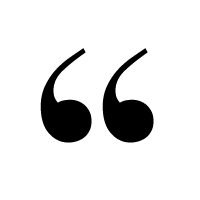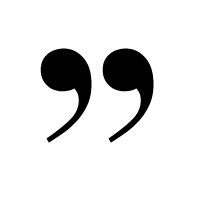
x
Contents
Home
Home
Home
Front
Matter
Back
(Scroll down)
To Madi, my chaotic child
I say unto you: one must still have chaos in oneself to be able to give birth to a dancing star.
Nietzsche, Thus Spoke Zarathustra
I say unto you: you still have chaos in yourselves.


Acknowledgments
There are too many to thank.
People, places, things, and even non-nouns.
Almost all of them will be left out. But I’ll mention a few of the people.
Joshua Hilst provided invaluable help throughout this project, from its initial stages to its completion. He read through the entire textual draft back when it was just a word doc and offered in-depth feedback.
J. E. Hornsby supplemented my meager French with her expertise, unlocking the subtleties of Lyotard’s prose.
My undergraduate research assistant, Kyra Lindholm, provided usability testing, checking each link, telling me when things moved to quickly or slowly, and finding my typos. The menu system owes mainly to her initial frustrations. I would like to thank the English Department at TCU for Kyra’s time.
Amanda Booher, Jackie Hoermann, Brad Lucas, Ashley Rea, Amy Tuttle, and Wilton Wright offered feedback on an early web version of this project.
Diane Davis and Jody Shipka each joined me in lengthy email conversations as I tried to work out the intricacies of their positions. Each was kind and encouraging to me, and I consider myself lucky to count them among my colleagues.
This project originally began as a dissertation under the care of Victor Vitanza, Cynthia Haynes, Andrea Feeser, Christina Hung, and Jonathan Hickman. Jonathan inspired this work from its outset and has probably had far too much influence on my own design choices. Christina challenged me throughout my early work making visuals. When I called drawing a language, she was quick to correct me. It was this correction that led to the rest of this work. Without her this project could not exist. Andrea resisted my arguments throughout the project, and I cannot thank her enough for it. She kills with kindness and erudition. Cynthia provided my moral compass, always encouraging, always reminding me of who or what was being left out.
And Victor.
Thank you, Victor.
You taught me rhetoric and that these words are not enough.
You taught me rhetoric and that these words are not enough.
I was fortunate enough to be able to test out some of these ideas on three graduate seminars.
The students of Art History 628: Visual Rhetoric of Comics at the University of Kentucky were a ragtag bunch. A few undergrads mixed it up with MA and PhD students in English, Art Education, and Art History. We read, learned, and made stuff. They were also kind enough to read Lyotard with me, a commendable task.
Here at TCU I taught two graduate courses. The students of my Digital Rhetorics seminar created webtexts beyond my own imagination and forced me to make arguments about the values of digital scholarship. My Modern Critical Theory students helped me to work through some of the details, particularly the relationship of digital scholarship to feminist theory.
“Vorhandenheit” was originally published in Kairos, and I cannot thank them enough for allowing me to republish it here in its entirety. Likewise, the image on Difference was originally published as part of an article for Digital Humanities Quarterly. Both Kairos and DHQ are committed to authors, allowing them ownership over the material they create. They provide a model for other journals.
I would also like to thank my editors and anonymous reviewers at Sweetland Digital Rhetoric Collaborative and the University of Michigan Press. Aaron McCollough and Mary Francis oversaw the project from inception to completion. Anne Ruggles Gere and Naomi Silver cast a vision and helped me think through its implications. Mary Hashman worked to make certain everything fit together. Jeremy Morse helped me over the technical hurdles as his team created the DLXS version. Joy Margheim’s in-depth copyediting was impressive and much appreciated, especially on such a unique project. Without their efforts, insights, and encouragement, none of this would be here.
And finally my wife, Meaghan. You put up with an absentee husband. I was there but too often here, thinking through the next argument, planning an image or interaction. Thank you for your patience and your encouragement. You believed in me even when I doubted myself.
Copyright © 2017 by Jason Helms
Some rights reserved
This work is licensed under a Creative Commons Attribution-NonCommercial 4.0 International License.
http://creativecommons.org/licenses/by-nc/4.0/
Published in the United States of America by the
University of Michigan Press
ISBN: 978-0-472-90069-5 (e-book)

